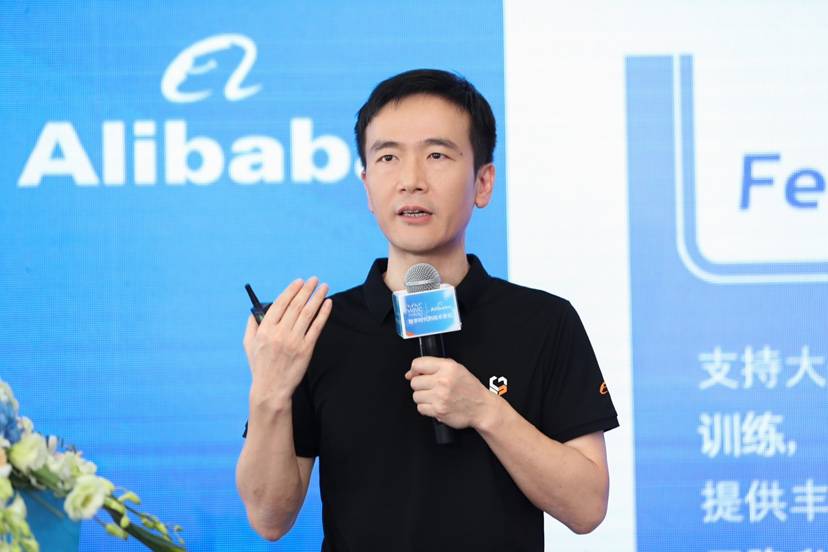
Photo credit: Alibaba Group
Alibaba Group formed a technology committee on Friday with six guiding principles to steer the research and development of artificial intelligence ethics.
The ethics committee will design and implement an AI ethical framework with regulations and accountability mechanisms covering key areas, including algorithmic governance and privacy protection.
Seven independent experts from the fields of technology, law and philosophy will join the committee. They will sit alongside members of Alibaba’s research division DAMO Academy, the company’s legal and compliance teams, and others.
“The tech ethics committee aims to become a gatekeeper for tech innovation,” said Cheng Li, Alibaba Group’s Chief Technology Officer, who will head the committee.
On the eve of the launch, Alizila spoke to Cheng about the committee’s formation and asked him to address some of the top ethical concerns involving AI and machine learning.
Q. What are people’s biggest worries when it comes to AI?
A. AI and machine learning have proliferated with increasingly broad applications in different aspects of society. In the meantime, we also face various challenges, including ethical dilemmas that concern the public.
For example, e-commerce platforms leverage recommendation algorithms to offer tailored product suggestions for consumers. While AI enhances the matching accuracy cost-effectively, it also raises controversy, such as the Matthew Effect, which causes “the rich to get richer and the poor to get poorer.”
When an AI model puts in variants such as click rate and conversion rate, it will favor top sellers while creating an unfair market for smaller merchants.
Many factors undermine algorithmic fairness, such as low-quality training data, inadequate awareness of AI governance, and weakness in the design of the algorithm itself.
Q. How can Alibaba help reduce this “winner takes all” effect?
A. Different factors create AI dilemmas, such as the Matthew Effect. Relying too much on click and conversion rates in algorithm design results in a poor user experience. The black box of deep learning also creates challenges for system optimization and human intervention.
That’s why we have invested in frontier technologies such as explainable AI and optimizing the management procedure to promote a fair environment for merchants. For example, we have built a special section for new products. This helps small merchants get traffic for new items that would otherwise have gone unnoticed due to low traffic.
In the meantime, we have built an algorithm based on multi-modal transfer learning to predict the growth potential of new products from small merchants and direct traffic to those promising new items cost-effectively.
Q. What guides Alibaba’s pursuit of AI development?
A. Alibaba’s Technology Ethics Committee has proposed six core guiding principles, which we will adhere to in developing our own AI technologies. Following these principles, we will also increase our investment in related technologies, including privacy-preserving computation, explainable AI and data security.
The six core principles proposed by the committee include: being human-centric, inclusiveness and integrity, safety and reliability, privacy protection, being trustable and accountable, and openness and collaboration.
Q. Can you name some of Alibaba’s ethical AI practices?
A. We have already invested in promoting ethical AI practices in areas such as personal information protection and algorithmic fairness. Take the search algorithm on our e-commerce platforms as an example. We have developed technologies to enhance the diversity of search results and promote stores from new merchants.
We also have designated colleagues in each Alibaba business unit for privacy protection and data security. For example, Taobao just launched private phone number protection services this year, so consumers’ phone numbers will not be visible when they contact merchants or logistics services providers.
We are also investing in various cutting-edge technologies, such as explainable AI and privacy-preservation computation, to increase the algorithm’s transparency and fairness, protect our users’ privacy and enhance data security. We have already published several academic papers on explainable AI by building our own explainable deep-learning models and causal inference models, and white-box models.
In the meantime, we have been exploring deploying explainable AI in areas such as intelligent risk assessment. We have used our explainable AI technologies in the Alibaba ecosystem to serve our customers, such as power grids and new energy power plants for electricity consumption forecasts.
Q. How does Alibaba view and address challenges such as deepfakes?
A. Deepfakes are actually the product of deep synthesis technology, which uses deep learning and virtual reality to produce text, image, audio, video and a virtual scene. It can help in areas like medical research. However, it can also be used to create videos and images depicting things that have never happened.
Such fake videos with inappropriate comments could erode the reputation of individuals, especially where public figures are involved. Alibaba has proposed an AI governance framework to fight against the inappropriate use of AI.
We are optimistic that leading technologies such as AI can be used for social benefits and the common good.
Following the six core principles proposed by the Alibaba Technology Ethics Committee, we hope to drive the sustainable development of advanced technologies that can benefit society at large, create real value for current and future generations and stimulate economic growth over the long term.
This article was originally published on Alizila.
Alibaba Cloud Unveils Strategic Roadmap for International Business

871 posts | 198 followers
FollowLiam - December 29, 2022
Nick Fan - January 18, 2023
Alipay Technology - November 26, 2019
Alibaba Cloud Serverless - March 8, 2023
ferdinjoe - January 2, 2024
Maya Enda - June 16, 2023

871 posts | 198 followers
Follow Platform For AI
Platform For AI
A platform that provides enterprise-level data modeling services based on machine learning algorithms to quickly meet your needs for data-driven operations.
Learn More AIRec
AIRec
A high-quality personalized recommendation service for your applications.
Learn More Epidemic Prediction Solution
Epidemic Prediction Solution
This technology can be used to predict the spread of COVID-19 and help decision makers evaluate the impact of various prevention and control measures on the development of the epidemic.
Learn More Artificial Intelligence Service for Conversational Chatbots Solution
Artificial Intelligence Service for Conversational Chatbots Solution
This solution provides you with Artificial Intelligence services and allows you to build AI-powered, human-like, conversational, multilingual chatbots over omnichannel to quickly respond to your customers 24/7.
Learn MoreMore Posts by Alibaba Cloud Community